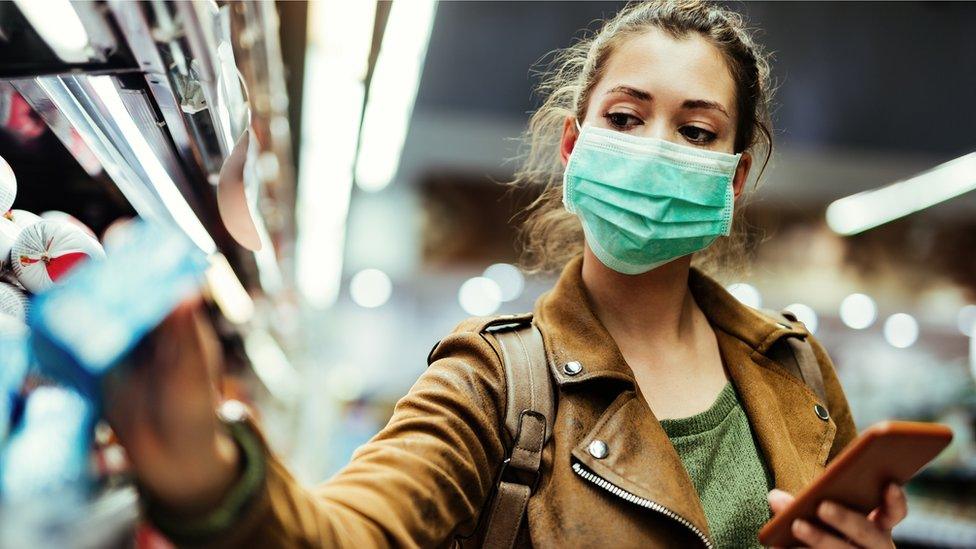Champagne puts fizz in Morrisons' Christmas sales
- Published
- comments
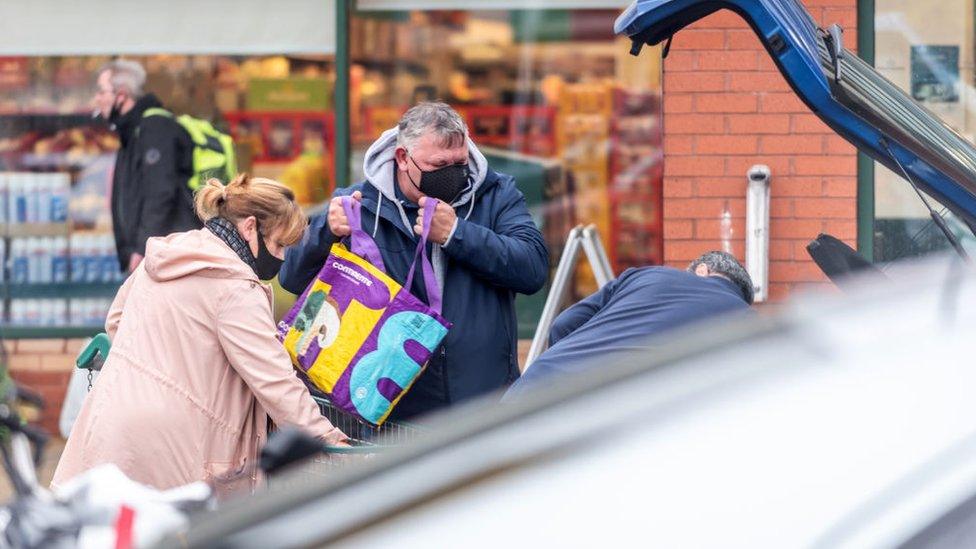
Supermarket chain Morrisons has said it saw a shift in shoppers' behaviour in the run-up to Christmas as a result of Covid-19 restrictions.
It said that customers started shopping early to secure their festive treats, with traditional Christmas goods in strong demand.
Champagne sales jumped 64% over the key Christmas trading period, while sales of whole salmon increased by 40%.
Morrisons also said it would offer its car parks to host vaccination centres.
The supermarket's chief executive, David Potts, saidthree of its supermarket car parks would be hosting coronavirus vaccinations from Monday, and it would offer another 47 locations to help with the vaccine rollout.
'Severe effect'
Overall sales at Morrisons rose by 9.3% in the three weeks to 3 January, compared with the same period last year.
"The pandemic has had a severe effect on people and communities around Britain for nine months now but it has been especially hard at Christmas time," Mr Potts said.
"I'm very pleased with the way the Morrisons team has helped our customers across the nation enjoy their Christmas in the best way they could."
The supermarket also suggested that festive sales had been driven by the fact that rules around larger family gatherings changed in England, meaning customers had to buy for last-minute smaller festivities.
In the nine weeks to 3 January, like-for-like sales, stripping out the effect of new shops opening and fuel sales, were up 8.5% and in the six months to the same date they rose 8.1% compared with a year ago, boosted by strong online sales and that of its wholesale business.
'Indulging after a tough year'
Morrisons said it had also benefitted from out-of-home eating and drinking being restricted by strict Covid-19 regulations.
Supermarkets were classified as essential retailers in England's second national lockdown between 5 November and 2 December, while restaurants and cafes could only operate takeaway services.
According to new figures from market research firm Kantar, British people forked out £11.7bn in supermarkets throughout December in the sector's busiest month on record.
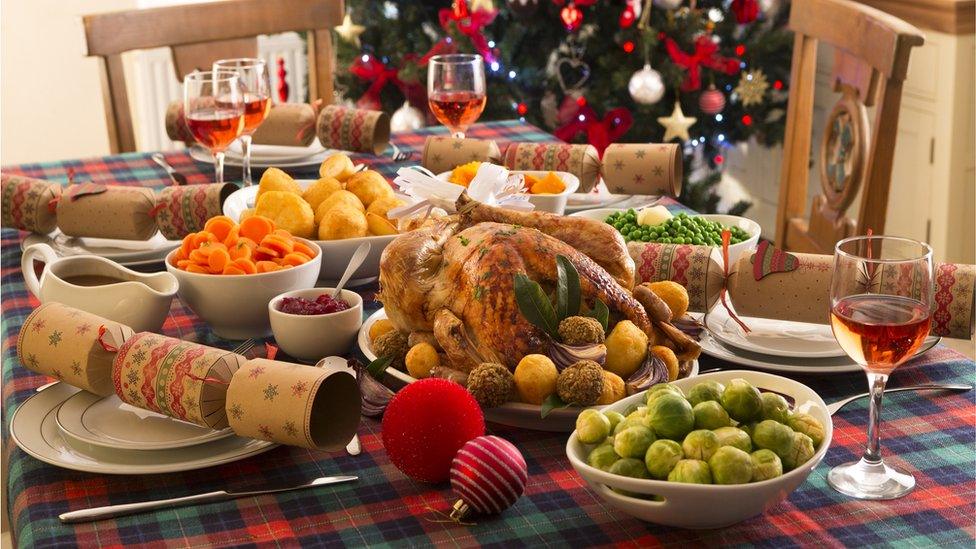
Christmas food sales soared with many hospitality venues shut except for takeaways in December
Supermarket trading was boosted by the £4bn that would normally have been spent on food and drink outside the home over the Christmas season, it said.
"While celebrations may have been more low key, there were also signs of consumers keeping merry and indulging after a tough year", said Fraser McKevitt, head of retail and consumer insight at Kantar.
Cheese sales, for example, increased by 17% and chilled desserts by 15%. Meanwhile, alcohol sales rose by £310m, with options to drink in pubs, bars and restaurants limited.
The firm also found that online grocery sales accounted for 12.6% of total spend in December, compared with 7.4% in 2019.

'A Christmas like no other'

December is always busy for the supermarkets but this one has been the busiest on record.
With all the restrictions and the closure of pubs and restaurants across much of the UK, people have had to eat and drink at home instead. According to Kantar, we spent £12bn last month, the highest amount of groceries sales ever.
It's been a Christmas like no other but it seems we were determined to enjoy it. Aldi reported exceptional demand for its premium products yesterday. Morrisons says champagne sales were up 64% on last year.
All the supermarkets will be toasting bumper festive sales this year and with another national lockdown in place, they're set to enjoy continuing increased demand for another few months.

Online sales boost
Sophie Lund-Yates, equity analyst at Hargreaves Lansdown, said Morrisons' trading update marked a "significant milestone" for the supermarket chain.
"Morrisons is an underdog in some ways, especially when looking at the online business, which is smaller than some rivals.
"The pandemic has given the group a chance to address this, and digital sales have more than tripled so far this quarter.
"The question now is if Morrisons can keep a firm grasp on that momentum, and push growth long and hard enough to give its competitors something to worry about," she added.
Separately, clothing and homeware retailer Next reported a big uplift in online sales over the festive period.
Online sales saw a jump of 36% in the nine weeks to 26 December compared with the same period last year, off-setting the 43% fall seen in stores.
As a result, sales were 1.1% lower overall. The retailer said shoppers had shunned party outfits and work clothes in favour of loungewear.
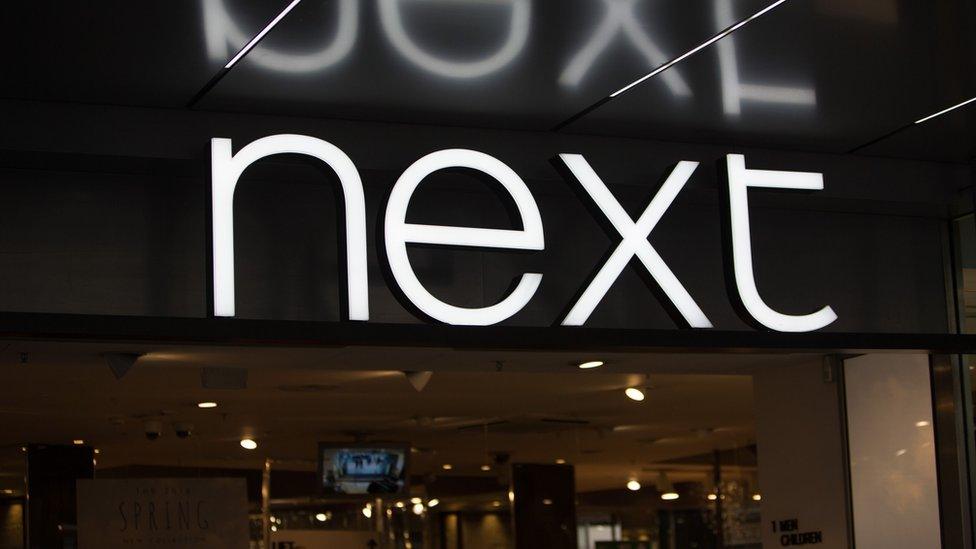
Next boss Simon Wolfson said that profits from better-than-expected sales in November and December would, however, be wiped out by fresh lockdown restrictions in England that would force 90% of its stores to close.
It also has to account for additional costs stemming from disruption to its traditional Boxing Day sale and clearing stock leftover in its shops.
Despite lockdown restrictions, Next is "likely to flourish as we emerge from this pandemic", said Julie Palmer, a partner at the financial consultant Begbies Traynor.
She added that the recent administrations of the Arcadia Group and Debenhams might drive more shoppers to the retailer, as they turn to other familiar British brands.
"However, with no assurances of how long social distancing measures will be implemented and consumers now shopping for a purpose, not a pastime, the business must continue to manage costs and innovate if it is to take full advantage of these opportunities."
- Published5 January 2021
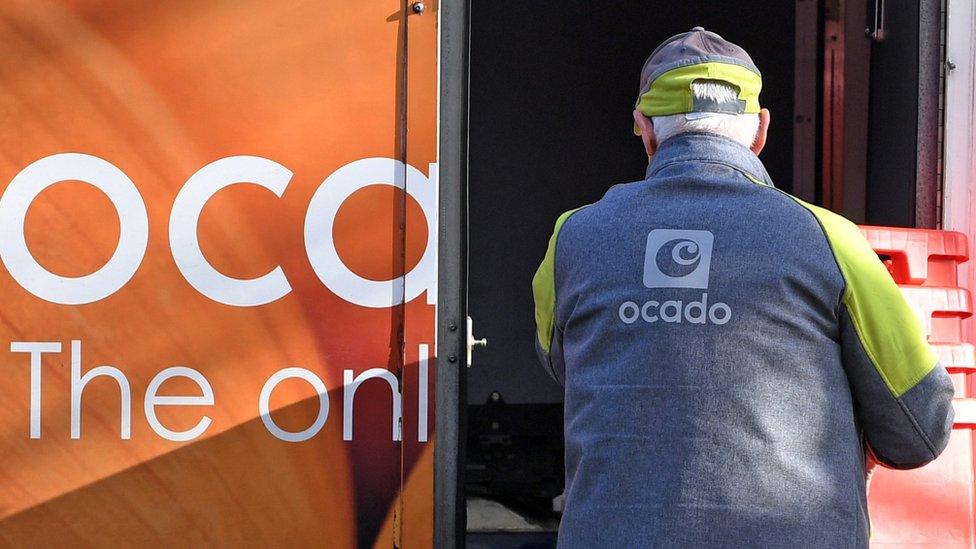
- Published8 December 2020

- Published31 December 2020
